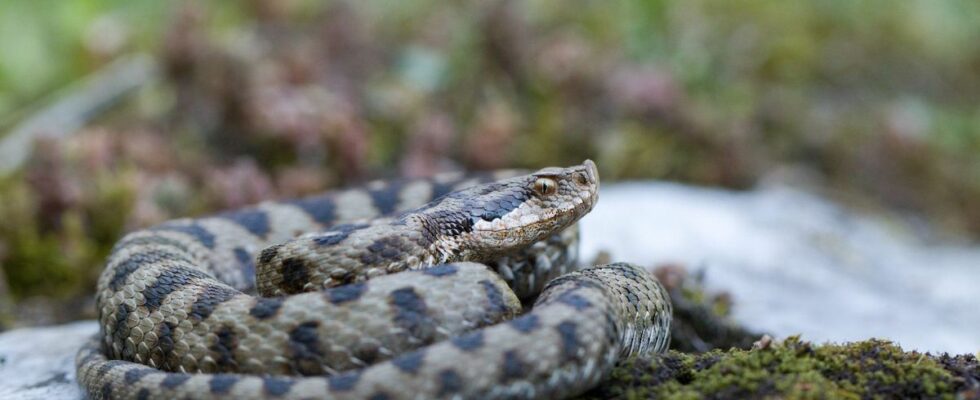Published on
updated on
Reading 2 min.
in collaboration with
Dr Gérald Kierzek (Medical Director)
“I saw him die…” A father recounts the horror he experienced with his 10-year-old son, bitten by a viper. This tragedy is a reminder of the danger of these reptiles in the wild. Dr. Gérald Kierzek gives us prevention advice and the right actions to take in the event of a bite.
On August 23, while hiking in the Aston Valley in Ariège, Patrick Albero and his son had no idea that they were about to experience a nightmare. In the middle of the afternoon, the child was bitten by a viper, a bite that, in a few minutes, left the boy in a critical condition.
A race against time to save the child
On France 3 Regionthe father confesses: “It was very violent, very, very violent. He screamed in pain. (…)Very quickly, within 10 minutes of the bite, I understood that it was a viper because it swelled up. And Julien is very frail.“.
The father carries his son down and meets another hiker. Together, they try to use an Aspivenin but the child’s fingers are too small.We had an hour to go down to the car. And during that time, well, he was starting to lose consciousness, to be unconscious, he was vomiting… I saw him die, you know.“.
Finally, Patrick finally manages to contact the firefighters who arrange to meet him at the nearest fire station. First aid before the SAMU intervenes and takes him to hospital in Foix, then to Toulouse Purpan.
Children particularly at risk
Doctors, faced with a rare but potentially fatal situation, then race against time to stabilize the health of the boy who was the victim of anaphylactic shock. The child escapes without after-effects but is marked by the accident.
“Symptoms include immediate, sharp pain at the site of the bite, swelling, redness and warmth around the bitten area and, in severe cases, nausea, vomiting, diarrhoea, malaise, low blood pressure, shock, neurological disorders and breathing difficulties indicating a severe allergic reaction (anaphylactic shock)” explains Dr. Gérald Kierzek, emergency physician and medical director of Doctissimo.
Our expert confirms that there is a greater danger for younger people: “In France, viper bites are rarely fatal. The Aspic and Péliade vipers are the most dangerous species in France. Children are more vulnerable because the amount of venom injected per kg of body weight is greater.“.
Essential prevention tips when hiking
Local authorities are reminding us of the importance of remaining vigilant, especially during the summer months when snakes are more active. Dr. Kierzek gives us several tips to reduce the risk of bites:
- Wear high-top shoes and pants when hiking;
- Avoid walking in tall grass;
- Do not put your hands in areas where visibility is impaired;
- Do not approach snakes, even if they appear dead;
- Be careful of the stones you try to lift because they are a good hiding place for snakes.
How to react in the event of a bite
In the event of a bite, the emergency doctor details the steps to follow:
- Immediately alert the emergency services (15, 18 or 112);
- Immobilize the bitten limb to limit the spread of venom;
- Remove any jewelry, watches or tight clothing around the bitten area;
- Clean the wound with soap and water, then apply an antiseptic;
- In case of pain, use only paracetamol;
- And above all, do not make any sudden movements such as applying a tourniquet, incising the wound or trying to suck out the venom or apply ice.
